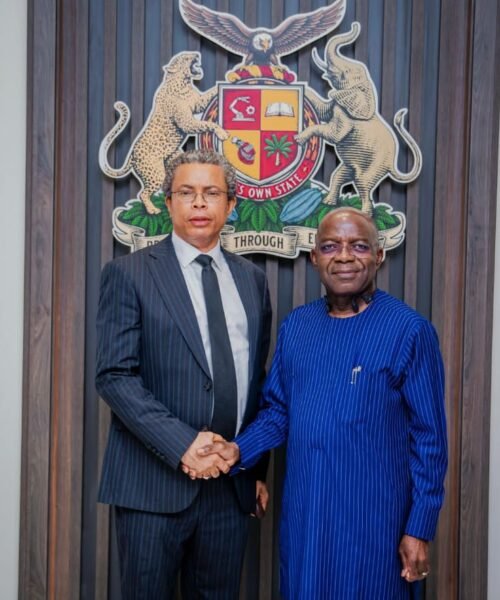Transforming Remittances into Prosperity: Governor Otti’s Strategic Approach
Governor Alex Otti’s administration in Abia State has demonstrated a proactive approach to leveraging diaspora remittances and mitigating the challenges posed by the “Japa” wave, despite the structural limitations of limited federal institutional presence in the Southeast. While specific initiatives targeting remittance conversion rates are not exhaustively documented, Otti’s broader economic policies align strategically with optimizing the socioeconomic impact of diaspora inflows. Below is an analysis of his efforts, supported by available data and contextual insights:
1. Infrastructure Development to Attract Investments
Governor Otti has prioritized infrastructure modernization as a cornerstone for economic transformation. His administration’s partnership with investors to develop critical sectors like energy—evidenced by the signing of the Abia State Electricity Bill into law—creates an enabling environment for diaspora-funded ventures. Reliable infrastructure reduces operational costs for businesses, making remittance-driven investments in sectors like manufacturing (e.g., Aba’s leather and garment industries) more viable. Additionally, the planned 9,000-capacity International Conference Centre in Umuahia signals a commitment to boosting tourism and business connectivity, which could attract diaspora capital.
2. Social Protection and Human Capital Development
To counterbalance brain drain and convert remittances into sustainable growth, Otti launched a ₦18.9 billion social protection program in 2025, targeting vulnerable populations. By alleviating poverty through direct financial support, the initiative reduces overdependence on remittances for basic needs, freeing up funds for productive investments. Furthermore, his abolition of school fees and levies in public schools ensures that remittances can be redirected toward entrepreneurship or skill acquisition rather than education costs, fostering a more skilled workforce. This aligns with studies from Arochukwu LGA, where remittances often fund small businesses but risk fostering political patronage without structured interventions.
3. Institutional Reforms and Governance
Otti’s administration has emphasized transparency, such as the introduction of imprest accounts for school principals to prevent extortion. Such measures strengthen institutional trust, encouraging diaspora members to invest in community projects or formal enterprises rather than informal channels. The establishment of the Abia Global Economic Advisory Council (AGEAC) further institutionalizes diaspora engagement, providing a platform for expertise and capital inflows. While data on remittance-specific policies remains sparse, these reforms create a framework for efficient resource utilization.

4. Addressing the “Double-Edged Sword” of Migration
Positive Leverage
Job Creation: By improving infrastructure and reducing bureaucratic bottlenecks, Otti’s policies make Abia more attractive for diaspora-led ventures. For example, partnerships with investors in renewable energy could harness remittances for green industrialization.
Knowledge Transfer: Programs like AGEAC facilitate collaboration between diaspora professionals and local institutions, mitigating brain drain by creating opportunities for remote or cyclical contributions.
Mitigating Negatives
Reducing Vulnerability: The social protection fund cushions households against economic shocks, reducing overreliance on remittances.
Skill Retention: Free education and youth empowerment initiatives aim to retain talent by aligning local opportunities with global aspirations.
5. Otti’s plans for Enhanced Impact
While the Governor’s current actioned efforts are commendable, he envisions further steps to amplify results:
Diaspora Bonds: Mirroring global models (e.g., India’s diaspora bonds), Abia state is looking into issue state-backed bonds to fund infrastructure, using remittances as collateral.
Digital Remittance Channels: He’s tinkering with partnering with international fintech firms to reduce transfer costs (currently ~9% globally) this would increase disposable income for investments.
Data-Driven Policies: He believes that collaborating with institutions like the IMF is key to analyze remittance volatility (as studied in Arochukwu LGA) should refine targeting.
Conclusion
Governor Otti’s administration has laid a robust foundation for converting remittances into socioeconomic dividends through infrastructure, governance, and human capital reforms. However, Dr Alex Chioma Otti OFR believes that sustained success requires explicit remittance-focused policies, such as diaspora bonds and cost-reduction partnerships, to fully harness the potential of Abia’s global citizenry. By addressing both the opportunities and pitfalls of the “Japa” wave, Abia is poised to transform diaspora contributions into enduring local prosperity.
Dr Chukwuemeka Ifegwu Eke writes from Yakubu Gowon University Nigeria







